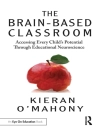Economic arrangements of Romanies are complexly related to their social position. The authors of this volume explore these complexities, including how economic exchanges forge key social relationships of gender and ethnicity, how economic opportunities are constructed and seized, and how economic success and failure are transformed into attributes of social persons. They explore how, despite — or perhaps because of — their unstable and ambiguous position within the market economy, shared today with a growing number of people facing precarity and informalisation, Roma and Gypsy communities continuously re-create more or less viable economic strategies. The ethnographically based chapters share accounts of socially and economically vulnerable populations that face their situation with self-determination and creativity.
Jadual kandungan
List of Illustrations
Acknowledgements
Introduction
Micol Brazzabeni, Manuela Ivone Cunha and Martin Fotta
Chapter 1. Usury among the Slovak Roma: Notes on Relations between Lenders and Borrowers in a Segregated Taboris
Tomáš Hrustič
Chapter 2. New Redistributors in Times of Insecurity: Different Types of Informal Lending in Hungary
Judit Durst
Chapter 3. A Way of Life Flowing in the Interstices: Cigano Horse Dealers in Alentejo, Portugal
Sara Sama Acedo
Chapter 4. ‘Endured Labour’ and ‘Fixing Up’ Money: The Economic Strategies of Roma Migrants in Slovakia and the UK
Jan Grill
Chapter 5. ‘I Go for Iron’: Xoraxané Romá Collecting Scrap Metal in Rome
Marco Solimene
Chapter 6. ‘I’m Good but also Mad’: The Street Economy in a Poor Neighbourhood of Bucharest
Gergő Pulay
Chapter 7. The Mechanisms of Independence: Economic Ethics and the Domestic Mode of Production among Gabori Roma in Transylvania
Martin Olivera
Chapter 8. Deceit and Efficacy: Fortune Telling among the Calon Gypsies in São Paulo, Brazil
Florencia Ferrari
Chapter 9. Houses under Construction: Conspicuous Consumption and the Values of Youth among Romanian Cortorari Gypsies
Cătălina Tesăr
Chapter 10. Exchange, Shame and Strength among Calon of Bahia: A Values-Based Analysis
Martin Fotta
Chapter 11. ‘Give and Don’t Keep Anything!’ Wealth, Hierarchy and Identity among the Gypsies of Two Small Towns in Andalusia, Spain
Nathalie Manrique
Afterword
Keith Hart
Notes on Contributors
Index
Mengenai Pengarang
Martin Fotta is a postdoctoral research fellow in the Institute for Ethnology at Goethe University Frankfurt. He is working on a book focusing on money-lending practices of Calon Gypsies of Bahia, Brazil.












